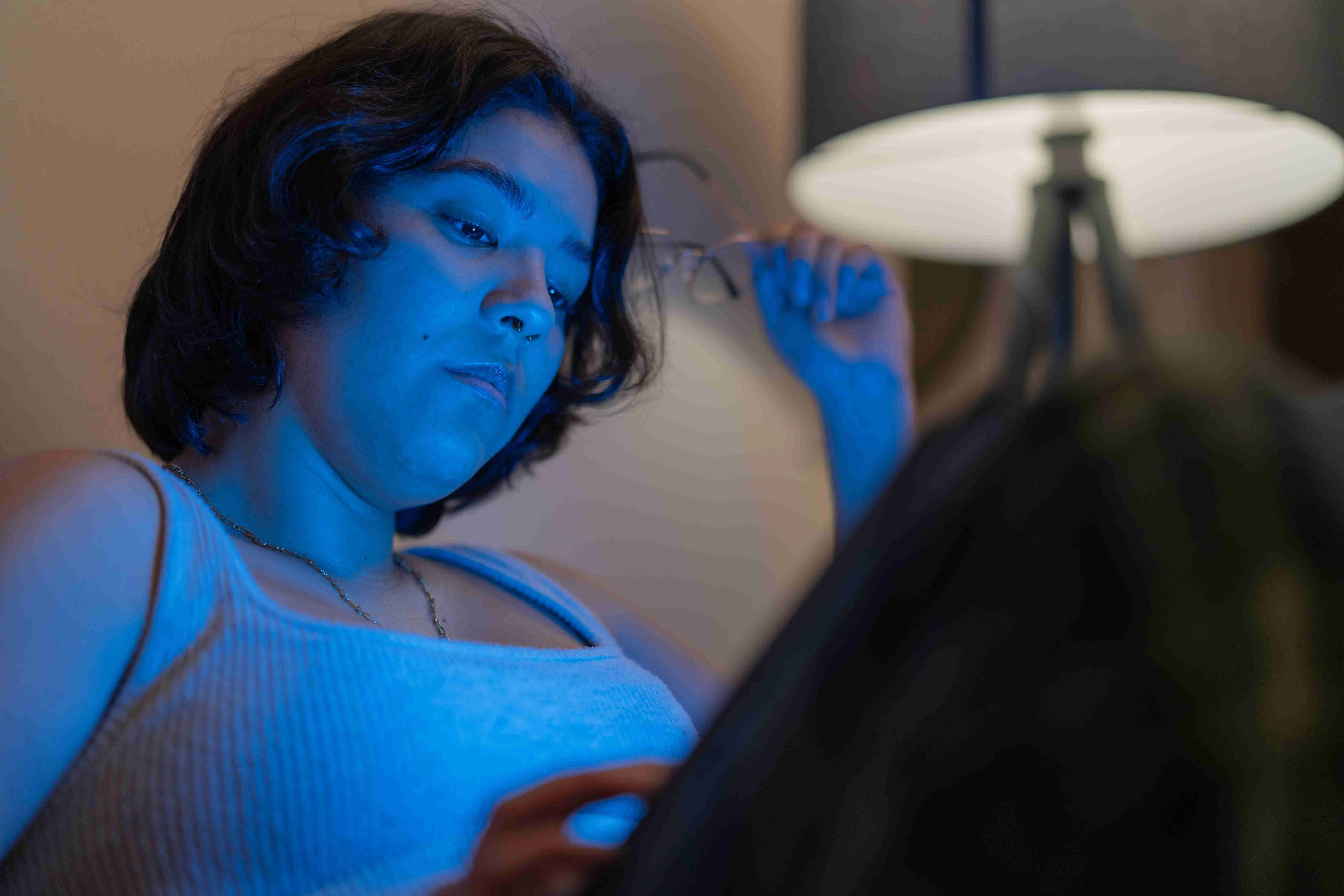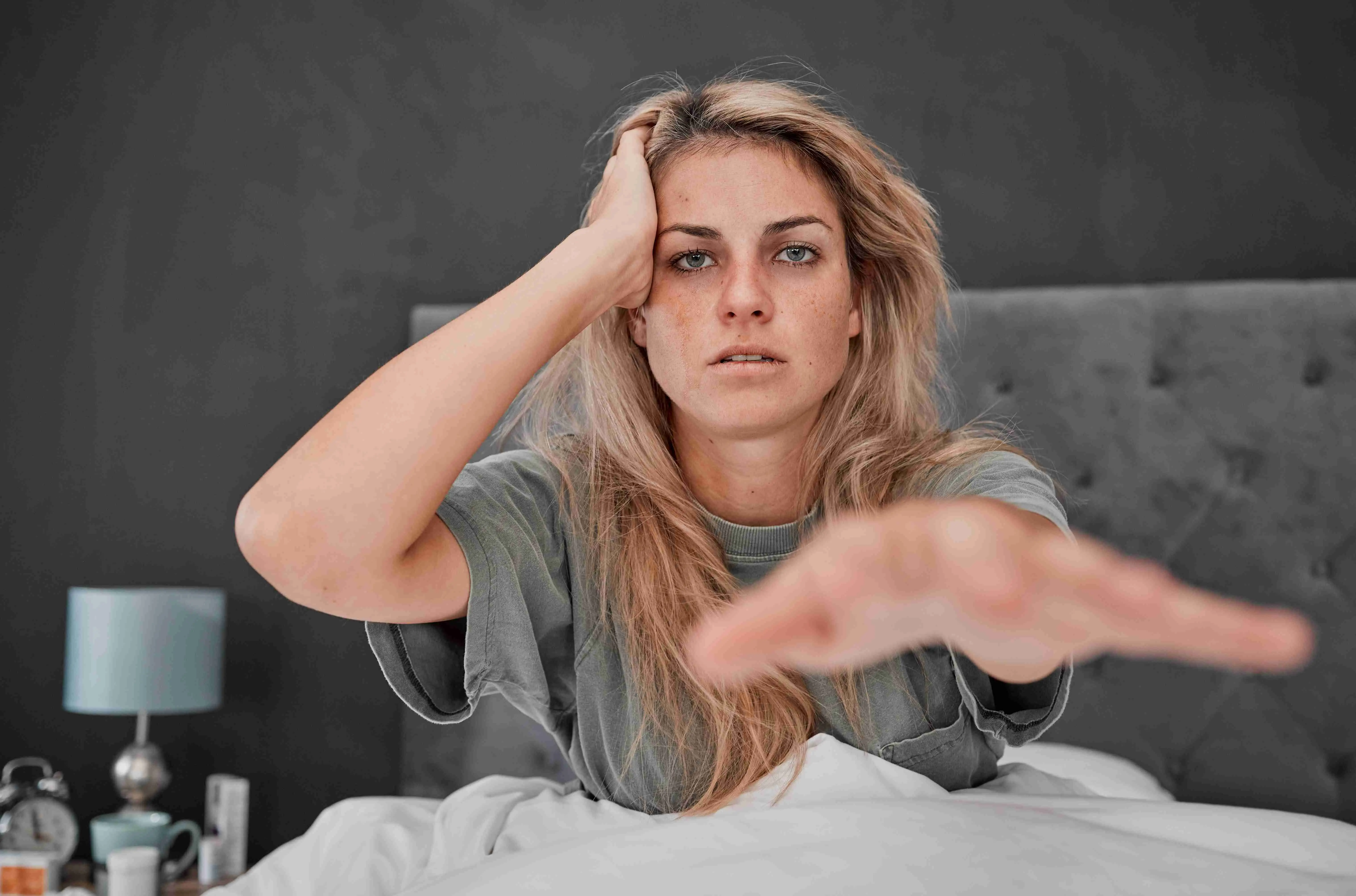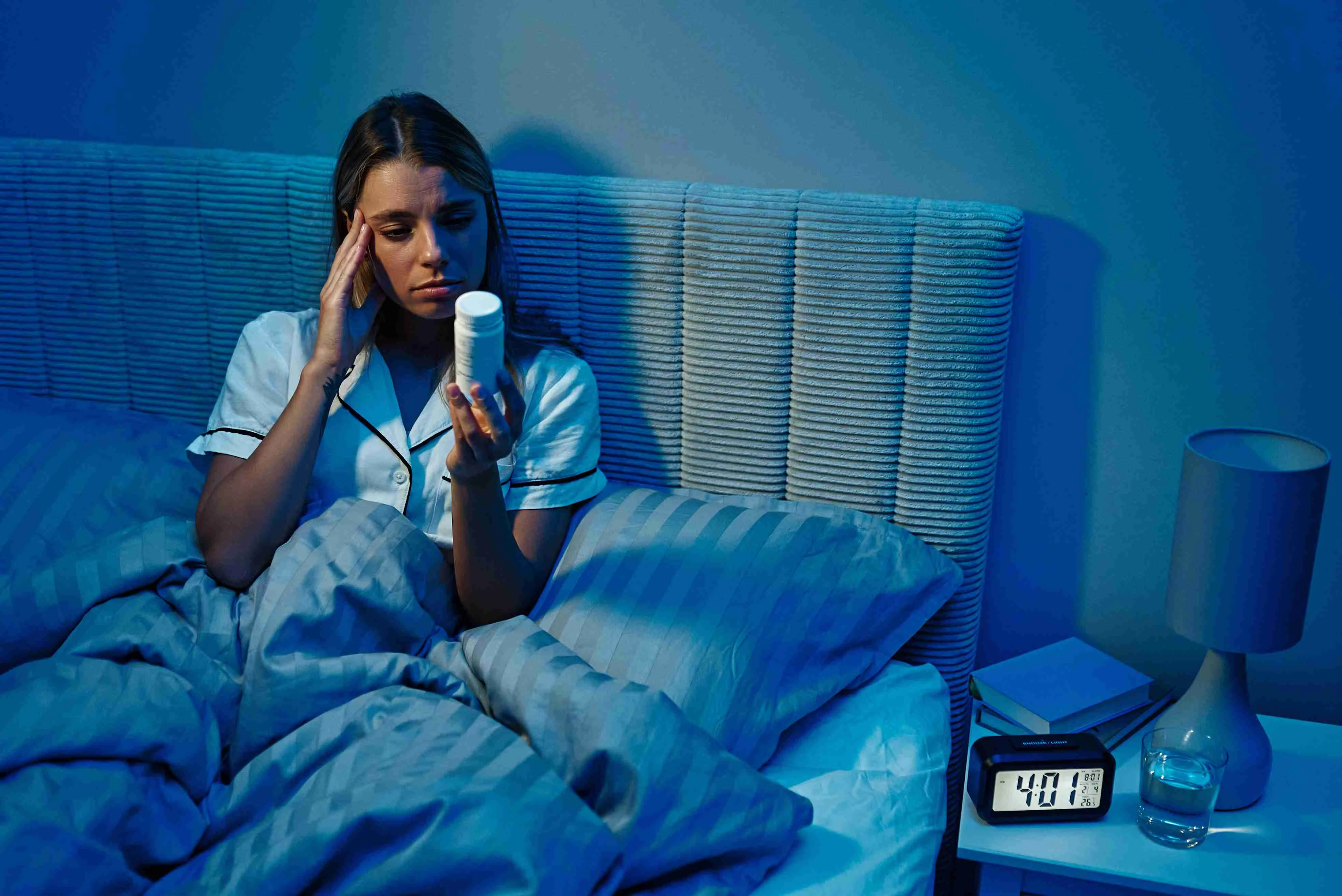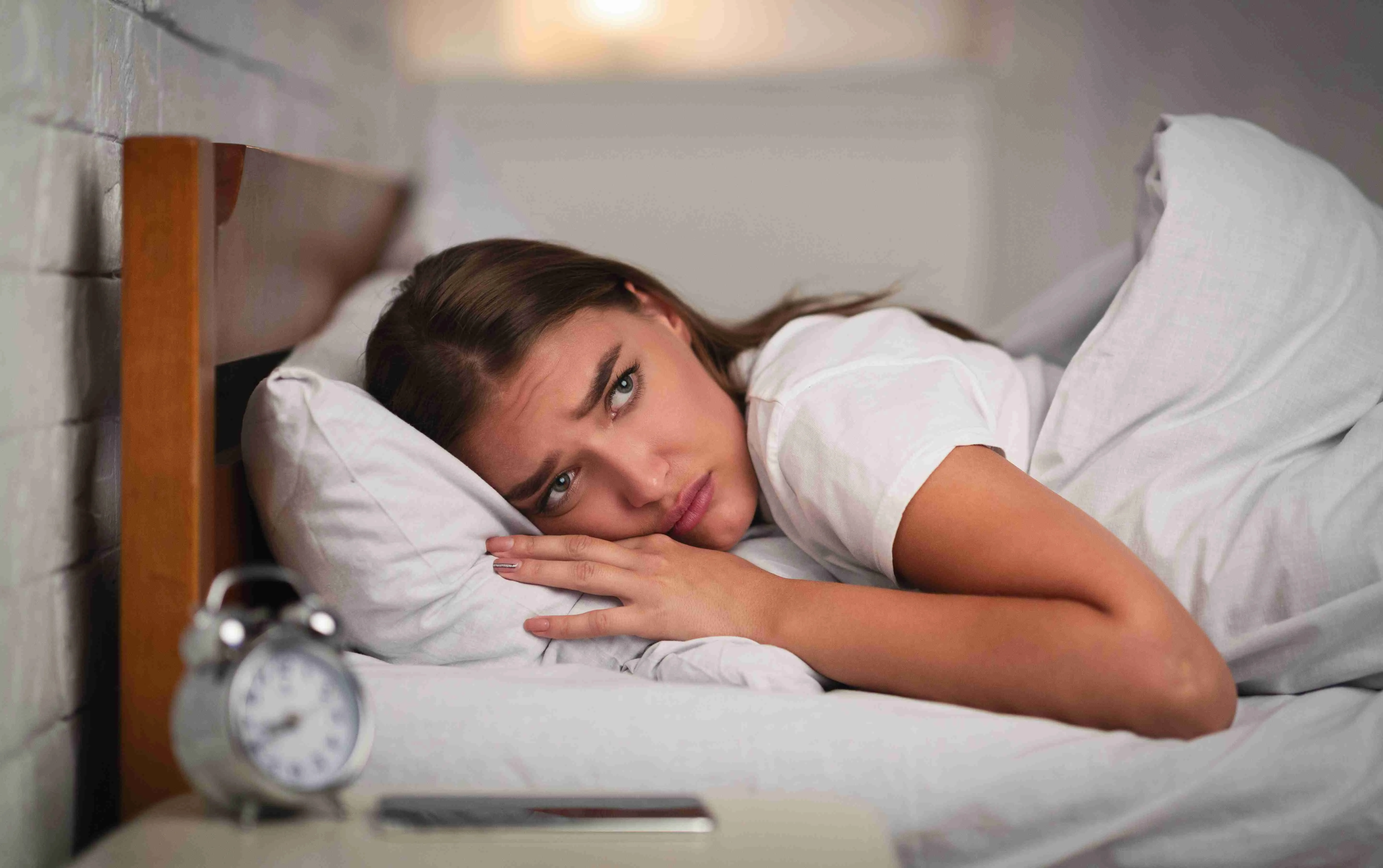When it comes to sleep disorders, insomnia is one of the most common sleep disorders that affects the livelihood of millions daily.
There are several causes, symptoms, and types of insomnia, and it’s vital for anyone suffering from insomnia to be aware of and to start creating a sufficient treatment plan to combat insomnia and enhance their overall quality of life.
In this article, we will discuss insomnia’s symptoms, causes, types, and treatments to help you understand more about insomnia and find the best methods to alleviate its symptoms.
What is insomnia

Insomnia is a sleep disorder characterized by difficulty falling asleep or staying asleep, even when there is an opportunity to do so. People suffering from insomnia often experience daytime sleepiness, fatigue, irritability, and difficulty concentrating.
This condition can have a significant impact on a person's overall well-being and quality of life. Insomnia can be acute, meaning it lasts for a short period, or chronic, lasting for longer periods, sometimes even years.
Symptoms of Insomnia
The symptoms of insomnia might change from one person to another, and it’s crucial to recognize them and consult with a healthcare professional if these symptoms persist. Insomnia can have a significant impact on your quality of life, so seeking help is important in managing and improving your sleep patterns.
Difficulty Falling Asleep
Individuals with insomnia often find it challenging to initiate sleep, even when they are tired. This can lead to tossing and turning in bed for extended periods, which can be both frustrating and exhausting.
The inability to fall asleep easily can have various causes, such as stress, anxiety, or an irregular sleep schedule.
Disruption in Circadian Rhythm
The circadian rhythm is the body's internal clock that regulates the sleep-wake cycle. When this rhythm is disrupted, it can lead to difficulty falling asleep and staying asleep throughout the night.
Insomnia can cause individuals to feel wide awake at night when they should be sleeping and sleepy during the day when they need to be alert and focused. This can negatively impact daily activities and overall well-being.
Headaches
Many individuals who suffer from chronic insomnia often experience frequent headaches or migraines. These headaches can range in intensity from mild to severe and can be accompanied by other symptoms such as sensitivity to light or sound.
The exact cause of headaches in individuals with insomnia is not fully understood, but it is believed that the disruption in sleep patterns and the resulting fatigue can contribute to the development of headaches.
Gastrointestinal Problems
Many individuals suffering from insomnia may experience stomach pain, bloating, or even diarrhea. This can be attributed to the body's stress response, which is activated when sleep is disturbed.
The gastrointestinal symptoms can further exacerbate the sleeplessness, creating a vicious cycle.
Muscle Aches
Individuals with insomnia often report feeling tense and having sore muscles throughout their body. This can be attributed to the body's inability to relax and rejuvenate during sleep.
The lack of quality sleep prevents the muscles from repairing themselves properly, leading to increased muscle tension and discomfort.
Decrease in Cognitive Functions
People with this sleep disorder often struggle with memory issues and difficulty concentrating. This can affect their performance at work or school and their overall cognitive abilities.
The lack of restorative sleep impairs the brain's ability to consolidate memories and process information efficiently. As a result, individuals may experience forgetfulness, decreased productivity, and an overall decline in cognitive function.
Causes of Insomnia

There are numerous causes of insomnia, from an underlying medical condition to psychological factors, lifestyle choices and habits, environmental factors, or medications. It’s important to be aware of these causes and recognize them to be able to combat insomnia.
Underlying Medical Conditions
- Chronic Pain: Individuals suffering from conditions such as arthritis, fibromyalgia, or back pain often find it difficult to get comfortable enough to sleep. The constant discomfort and pain can keep them awake at night, leading to insomnia.
- Respiratory Disorders: Respiratory conditions can also be a factor in causing insomnia. People with asthma, allergies, or chronic obstructive pulmonary disease (COPD) may experience difficulty breathing at night, leading to interrupted sleep.
- Neurological Conditions: Conditions such as Parkinson's disease, Alzheimer's disease, or epilepsy can disrupt the brain's normal sleep-wake cycle. These disorders can lead to changes in sleep patterns, including difficulty falling asleep or staying asleep.
- Gastrointestinal Issues: Conditions such as gastroesophageal reflux disease (GERD) and irritable bowel syndrome (IBS) can cause discomfort and pain, making it difficult for individuals to fall asleep or stay asleep. Symptoms like heartburn, indigestion, and abdominal pain can disrupt the sleep cycle and lead to insomnia.
- Hormonal Changes: Women going through menopause often experience hot flashes and night sweats that can disrupt their sleep. Fluctuations in hormone levels during the menstrual cycle can also lead to difficulty sleeping for some women.
- Circadian Rhythm Disorders: Conditions such as jet lag, shift work, and certain sleep disorders like delayed sleep phase syndrome can cause circadian rhythm disorders, causing insomnia. Individuals with these disorders may find it challenging to fall asleep at the desired time or stay asleep throughout the night.
- Post-Surgery: Post-surgery insomnia is a common condition that can disrupt sleep due to factors such as pain, discomfort, and medication side effects. Patients recovering from surgery may experience difficulty falling asleep, staying asleep, or achieving restful sleep.
Psychological Factors
- Anxiety: Anxiety is characterized by excessive worry and fear and can make it difficult for individuals to relax and fall asleep. The racing thoughts and constant anticipation can keep the mind active, preventing the onset of sleep. Similarly, stress, whether related to work, relationships, or other life events, can disrupt regular sleep patterns and lead to insomnia.
- Stress: Stress, whether related to work, relationships, or other life events, can disrupt regular sleep patterns and lead to insomnia. The constant pressure and tension can keep individuals awake at night, making it challenging to achieve restful sleep.
- Depression: Individuals with depression often experience disturbances in their sleep patterns, including difficulty falling asleep, waking up frequently during the night, or waking up too early in the morning. The negative thoughts and feelings associated with depression can interfere with the ability to relax and find restful sleep.
- Post-Traumatic Stress Disorder (PTSD): Individuals with PTSD often suffer from nightmares and flashbacks related to the traumatic event. These intrusive thoughts and memories can disrupt sleep and lead to insomnia. The hyperarousal symptoms associated with PTSD, such as an increased heart rate and hypervigilance, can also make it challenging for individuals to relax and fall asleep. Learn more about Trauma and Sleep.
Lifestyle Choices and Habits
- Irregular Sleep Schedule: Our bodies have an internal clock known as the circadian rhythm that regulates sleep-wake cycles. When this rhythm is disrupted due to irregular sleep schedules, such as staying up late on weekends or having inconsistent wake-up times, it can lead to difficulty falling asleep at night.
- Excessive Stimulant Use: Stimulants such as caffeine, nicotine, and certain medications can disrupt the sleep-wake cycle and make it difficult for individuals to sleep. Drinking multiple cups of coffee or energy drinks throughout the day or consuming nicotine products close to bedtime can lead to heightened alertness and restlessness, preventing individuals from achieving a restful sleep.
- Heavy Meals Before Bed: Eating a large meal shortly before going to sleep can cause discomfort and indigestion, making it challenging to fall asleep. The body requires time to digest food properly, and lying down immediately after a heavy meal can result in acid reflux or heartburn, further disrupting sleep.
- Sedentary Lifestyle: With the increasing use of technology and the rise of desk jobs, people are spending more time sitting and being inactive. Lack of physical activity can lead to a variety of health problems, including insomnia. When the body doesn't get enough exercise, it can become restless and agitated, making it difficult to fall asleep and stay asleep throughout the night.
Environmental Factors
- Noise: Excessive noise can be a major disruptor of sleep. Whether it's traffic sounds, loud neighbors, or even the ticking of a clock, noise can prevent individuals from falling asleep or waking them up during the night.
- Light Exposure: Light exposure, especially during the night, can also negatively impact sleep. The body's natural sleep-wake cycle is influenced by light, particularly sunlight. Exposure to bright light during the day helps regulate the sleep-wake cycle by promoting wakefulness.
- Uncomfortable Sleep Environment: When the sleeping environment is not conducive to restful sleep, it can greatly interfere with the ability to fall asleep and stay asleep throughout the night. An uncomfortable sleep environment can include factors such as excessive noise, bright lights, uncomfortable bedding or mattress, and an inappropriate temperature.
- Shared sleeping Spaces: When individuals share a bed or a room with someone who has different sleep patterns or habits, it can disrupt their own sleep. For instance, if one person snores loudly or tosses and turns throughout the night, it can disturb the other person's sleep.
Medications
Medications such as antidepressants, stimulants, and corticosteroids can disrupt normal sleep patterns and make it difficult for individuals to fall asleep or stay asleep throughout the night.
These medications can interfere with the production of melatonin, a hormone that helps regulate sleep-wake cycles.
Types of Insomnia
There are several types of insomnia, such as acute insomnia, chronic insomnia, comorbid insomnia, and maintenance insomnia, as well as other types, each with its unique characteristics and causes.
Acute Insomnia
Acute insomnia refers to a short-term sleep disturbance that lasts for a few nights or weeks. It is often triggered by a specific event or stressor, such as jet lag, a traumatic experience, or a change in sleep schedule. Acute insomnia usually resolves on its own once the underlying cause is addressed or the stressful event passes.
Chronic Insomnia
Chronic insomnia is a long-term sleep disorder that lasts for at least three nights a week for three months or longer. It can have a significant impact on a person's quality of life and overall health.
Chronic insomnia can be caused by various factors, including underlying medical conditions, mental health disorders, substance abuse, or poor sleep habits.
Comorbid Insomnia
Comorbid insomnia refers to the coexistence of insomnia with another medical or psychiatric condition. For example, individuals with chronic pain conditions like arthritis or fibromyalgia often experience difficulty sleeping.
Maintenance Insomnia
Maintenance insomnia is characterized by the inability to stay asleep throughout the night. Individuals with maintenance insomnia often experience frequent awakenings during the night and struggle to fall back asleep.
This type of insomnia can be caused by various factors, such as chronic pain, restless leg syndrome, or sleep apnea.
Fatal Insomnia
Fatal insomnia is an extremely rare and severe form of insomnia that is characterized by progressive neurodegeneration and ultimately leads to death. It is an inherited disorder caused by a genetic mutation affecting the brain's ability to regulate sleep.
Fatal insomnia typically begins in midlife and gradually worsens over time. Unfortunately, there is currently no cure for fatal insomnia, and treatment focuses on managing symptoms and providing supportive care.
Paradoxical Insomnia
One type of insomnia is paradoxical insomnia, also known as sleep state misperception. This type of insomnia is characterized by individuals who believe they are not getting enough sleep when in fact they are getting an adequate amount.
It is a frustrating condition as individuals feel fatigued, yet their sleep studies indicate normal sleep patterns. Paradoxical insomnia is often caused by anxiety or stress, and treatment typically involves addressing the underlying psychological factors.
Keto Insomnia
Another type of insomnia is keto insomnia, which occurs in individuals following a ketogenic diet. The keto diet is a low-carb, high-fat diet that has gained popularity for its potential health benefits.
However, some individuals may experience difficulty sleeping when transitioning to this diet. This type of insomnia is thought to be caused by the body's adjustment to using ketones for fuel instead of glucose.
Postpartum Insomnia
Postpartum insomnia is another type of insomnia that occurs in women after giving birth. It is estimated that up to 80% of women experience some form of sleep disturbance in the postpartum period.
Postpartum insomnia can be caused by hormonal changes, physical discomfort, anxiety, or the demands of caring for a newborn.
Period Insomnia
There is a type of insomnia that occurs specifically during a woman's menstrual cycle, known as menstrual-related insomnia. This type of insomnia is characterized by difficulty falling asleep or staying asleep during certain phases of the menstrual cycle.
Hormonal fluctuations, such as changes in estrogen and progesterone levels, are believed to play a role in disrupting sleep patterns during this time.
Diagnosing Insomnia

Diagnosing insomnia requires a comprehensive approach that includes a detailed patient interview, the use of sleep diaries, and potentially conducting sleep studies.
By gathering information about an individual's sleep patterns, lifestyle factors, and any underlying medical conditions, healthcare professionals can make an accurate diagnosis and develop an appropriate treatment plan for managing insomnia.
Detailed Patient Interview
Diagnosing insomnia requires a thorough and detailed patient interview to gather information about the individual's sleep patterns and difficulties.
The interview should focus on understanding the duration and frequency of sleep disturbances, as well as any other symptoms or factors that may be contributing to insomnia.
It is important to inquire about the patient's bedtime routine, sleep environment, and any potential stressors or medical conditions that may be affecting their sleep.
By conducting a comprehensive interview, healthcare professionals can gather valuable information to aid in the diagnosis and treatment of insomnia.
Sleep Diaries or Logs
Sleep diaries can also be a useful tool in diagnosing insomnia. Sleep diaries are records that patients keep to track their sleep patterns over a certain period of time.
These diaries typically include information such as the time they go to bed, the time they wake up, and any awakenings or difficulties experienced during the night.
Patients may also record factors such as caffeine or alcohol consumption, exercise, and any medications taken before bed.
Sleep diaries provide a visual representation of an individual's sleep patterns, allowing healthcare professionals to identify any trends or patterns that may be contributing to their insomnia.
Sleep Study
A sleep study involves monitoring an individual's sleep patterns and physiological functions during a night of sleep. This can be done in a specialized sleep laboratory or through the use of home-based sleep testing devices.
Sleep studies can provide valuable information about an individual's sleep architecture, breathing patterns, and any disruptions or abnormalities that may be causing their insomnia.
By analyzing the data collected from the sleep study, healthcare professionals can gain further insights into the individual's sleep difficulties and make an accurate diagnosis.
Treatments for Insomnia
Insomnia can have a significant impact on an individual's overall well-being and quality of life. Fortunately, there are several effective treatments for insomnia, and by combining these approaches, individuals can find relief from insomnia and enjoy restful nights of sleep.
Medications
These can include prescription sleep medications such as benzodiazepines or non-benzodiazepine hypnotics. These medications work by suppressing brain activity and promoting sleep.
However, it is important to note that sleep medications should only be used under the guidance of a healthcare professional and for a limited period to avoid dependence or other side effects.
Cognitive Behavioral Therapy for Insomnia (CBT-I)
This therapy focuses on identifying and changing negative thoughts and behaviors associated with sleep. CBT-I aims to improve sleep quality by addressing underlying psychological factors that may contribute to insomnia.
CBT-I is highly effective in treating chronic insomnia and can have long-lasting benefits even after therapy has ended.
Lifestyle Changes
Lifestyle changes can also play a crucial role in managing insomnia. Making changes to one's daily routine and sleep environment can greatly improve sleep quality.
This can include establishing a regular sleep schedule, creating a relaxing bedtime routine, and ensuring the bedroom is dark, quiet, and at a comfortable temperature.
Exercise
Engaging in regular physical activity can help regulate the body's internal clock, promote relaxation, and reduce anxiety and stress—all of which can contribute to better sleep.
However, it is important to note that exercise should be done earlier in the day, as exercising too close to bedtime can have a stimulating effect and make it harder to fall asleep.
Sleep Restriction Therapy
Sleep restriction therapy involves limiting the amount of time spent in bed to increase sleep efficiency, and it aims to help individuals develop a more consistent sleep schedule and improve their sleep quality over time.
By gradually increasing the time spent in bed as sleep efficiency improves, sleep restriction therapy can help reset the body's internal clock and promote better sleep patterns.
Acupuncture
This ancient Chinese practice involves the insertion of thin needles into specific points on the body to stimulate energy flow and restore balance.
Acupuncture is believed to promote relaxation and reduce stress, which can be beneficial for those struggling with insomnia.
FAQs
How common is insomnia?
It is estimated that around 30% of adults experience some form of insomnia during their lifetime. This prevalence makes insomnia quite common, and it can have a significant impact on an individual's overall health and well-being. Know more about how Insomnia and Older Adults
How do I relieve insomnia?
There are several strategies that can help relieve insomnia and promote better sleep. One effective approach is to establish a consistent sleep routine. Additionally, creating a relaxing bedtime routine, such as reading a book or taking a warm bath, can signal to your body that it's time to wind down and prepare for sleep.
Can anxiety cause insomnia?
Anxiety has a strong correlation with insomnia, as it can significantly disrupt sleep patterns and quality. Anxiety often leads to racing thoughts, excessive worry, and an inability to relax, making it difficult for individuals to fall asleep or stay asleep throughout the night.
What is postpartum insomnia?
Postpartum insomnia refers to the difficulty in falling asleep or staying asleep that occurs after childbirth. It is a common sleep disorder experienced by new mothers and can have a significant impact on their overall well-being.
Is insomnia genetic?
There is a genetic component to insomnia, with certain genes being associated with an increased risk of developing the disorder. However, it is important to note that genetics is just one factor among many that contribute to insomnia.
Is insomnia a mental illness?
Insomnia is not considered a mental illness in itself, but it is often linked to mental health conditions such as anxiety, depression, and post-traumatic stress disorder (PTSD).
Are women prone to insomnia more than men?
Women may be more prone to experiencing insomnia compared to men. Several factors contribute to this disparity. Hormonal changes during the menstrual cycle, pregnancy, and menopause can disrupt women's sleep patterns.
Conclusion
Insomnia is a common sleep disorder that affects a significant portion of the population. It is characterized by difficulty falling asleep, staying asleep, or both. Insomnia can have a profound impact on an individual's physical and mental health, leading to daytime fatigue, irritability, and difficulty concentrating.
Various factors contribute to the development of insomnia, including stress, poor sleep hygiene, and certain medical conditions. Treatment options for insomnia include lifestyle changes, cognitive behavioral therapy for insomnia, and medication.
It is important for individuals experiencing insomnia to seek professional help and adopt healthy sleep habits to improve their quality of life. Overall, understanding insomnia and its causes is crucial to effectively managing and treating this sleep disorder.
Jessica H.
Jessica is a reviewer, writer, and sleep enthusiast at Sleepiverse. Jessica graduated with her master's degree in Nursing research and education. She is a registered nurse and currently works in the Intensive Care Unit. Since becoming a nurse, Jessica has worked the night shift, which means a disrupted sleep schedule. Knowing she needed to function at her best while caring for patients at night, she spent a lot of time researching how to sleep well with a difficult schedule.


